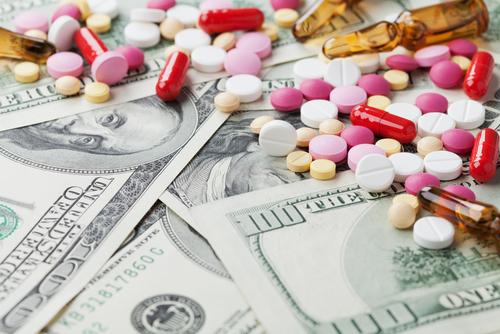
McKesson Corporation [1] was fined $150 million in civil penalties related to failure to report suspicious opioid orders through their distribution network this week.
They were fined $20 million in 2008 over the same problem, but it apparently didn’t alter their behavior. In 2008 they committed to designing and implementing a system to identify and report suspicious orders. “The Justice Department says McKesson created a compliance program but failed to fully implement or adhere to it, resulting in the latest penalties.” [2]
Now an independent monitor is required to oversee McKesson’s efforts. But because this is a distribution network, “customers who would have received controlled substances from these distribution centers will receive the medications from one of the 28 other distribution centers in the company's network and will experience no disruption in service.” Centers are located in Florida, Colorado, Ohio and Michigan
McKesson was the #5 company in the Fortune 500 with revenue of $179 billion in 2015. (To put in that context, the $150 million dollar fine is 0.08% of their revenue – a rounding error.) I took a moment to browse McKesson’s website and pull a few quotes.
McKesson employees make decisions, both big and small, with a focus on what is ethically right. …
We make personal commitments—to our customers, vendors, our colleagues. We hold ourselves accountable for keeping those promises. We take individual responsibility for the decisions we make to get results for our customers. We build trust with our customers by delivering on our promises. We all own accountability for McKesson. …
From their pharmacy web page:
Our pharmaceutical ordering, packaging and delivery solutions help you to deliver high-quality patient care and drive better business results.
Seems business results trump high-quality patient care.
The opioid epidemic is a growing problem. McKesson’s fine draws a headline until you realize that it is all smoke and mirrors. They say they’re sorry; the Feds get a trophy and business continues as usual. Why not put some teeth in these judgments, $150 million is not a penalty. (If you were earning $40,000 it would be a $32 penalty) Stopping a few distribution centers within a network is not a penalty, the rest of the system picks up the slack. Big name resignations do little; executives leave with their golden parachutes.
How about a "time out," not being able to participate in pharmaceutical sales for a few months? Unfortunately, removing such a large pharmaceutical distributor would be too disruptive to the supply chain of McKesson’s innocent clients. The sub-prime crisis brought the phrase 'Too big to fail' into the lexicon, perhaps given the fine levied on McKesson we should consider the phrase, "too big to punish."
[1] McKesson is a retail pharmaceutical distributor, providing management tools for medical supplies and IT services.



